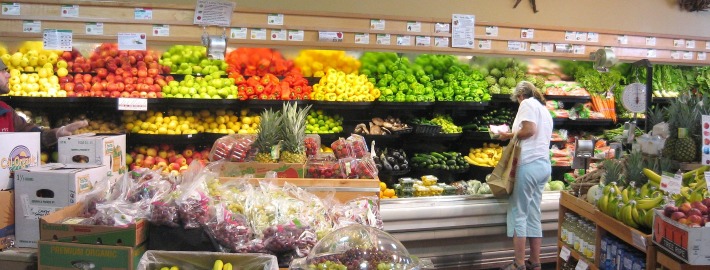Wholesale Grocers for Grocery Stores
Wholesale Grocers for Grocery Stores
Wholesale grocers and grocery stores have a business relationship that is built on economics and trust. This is the business network that helps bring goods to their final consumers. Every grocery store needs a dedicated group of not one but many wholesale grocers.
So what is the business model that connects wholesale grocers to the grocery stores? Or what is this network that brings business from wholesale grocers to the grocery stores? What does the process entail?
The distribution network between wholesale grocers and grocery stores
Wholesale grocers bring products to the grocery stores. In most cases manufacturers do not work directly with retail stores. There are some manufacturers who set up their own distribution networks to do direct business with the retailers. This is seen more so in the last few decades. But it is still not very common. Either way, whether a manufacturer sells their products through their own distribution business or through other wholesale grocers, it is the wholesaler who deals with retailers. This section of business – that is selling goods to retailers – work through its own methods and processes.
Now to talk through examples, which still follow the traditional manufacturer to wholesaler to retailer cycle; a wholesale grocer is the middleman here. Wholesale grocers are the link between a distributor and a retailer. This is a very crucial link that builds or breaks businesses.
Wholesale grocers introduce new products to the retailers. They are the ones who get to decide first and foremost what product is going to the next stage of the distribution cycle. One particular wholesale grocer might not like a particular product and decide to not distribute it while another grocer might decide to go ahead with it. This will decide what retail grocery stores are selling what products.
For instance, if a wholesale grocer decides to not distribute a new type of jam then all the retail stores in their network will not get to see that new type or brand of jam and decide if they want to stock it or not. Where as if wholesale grocers decide to go ahead with this jam then all the retail grocery stores in their network will get to see and test this jam.
Another scenario is that a retail grocery store might be served by say two different wholesale grocers. Then if one brings the jam to the store and it becomes a hit with the consumers, and the other wholesaler might fall out of favor if this becomes a regular thing.
Deciding on what products to sell or at what cost is a job function of the wholesale grocer. This is very important as they can make or break a product. Not only they introduce new products to retailers; they also have the power to decide if they want to discontinue the distribution of a product or sell a new one. Mostly the cost factors decide these things.
Wholesale grocers also have the control over what products to distribute and what cost. If wholesale grocers, through their network or business association, decide to not distribute a certain product then both the manufacturers and retailers are at a loss. This could be for a number of reasons. One instance would be when a manufacturer is being a bully and not negotiating on pricing for a certain product. The wholesale grocer being the middleman does have the power to control the distribution and cost of a product.
Wholesale grocers bring the best of the products to the retailers. Wholesalers also work on profit margins. The more products and categories of products they sell to retailers, the more money they make. The more profit margins wholesale grocers can work out for themselves, the better pricing they can pass to the retail grocery stores.
Wholesale grocers also bring the best of promotions and offers to the retail grocery stores especially when a manufacturer is launching a new product in the market. This is how retail stores are always running some promotion or the other for the consumers. Retails grocery stores also get free gifts or special holiday discounts to pass on to the end-users. This is the reason retail stores are filled with shiny new packages during Christmas times and other holidays.
The trusted network between wholesale grocers and grocery stores
Business relationships are necessary for the sustenance of any business. How well a business partnership works is an important factor in how well a business runs.
The wholesale grocers are the link between the manufacturer and the retailers. Grocery stores will run of out milk or a brand of yogurt if the wholesalers refuse to distribute it. Yes, manufacturers can directly reach the retail grocery stores. But establishing the distribution side of business is not easy. It takes years of dealings and trust and a strong network to run a successful distribution business. It can’t happen instantaneously if a distribution problem arises.
For instance, if wholesale distributors collectively decide to boycott a product then there is nothing a manufacturer can do in a short period of time to have the product reach the retail grocery stores in the same amount of time as the wholesale grocers can.
Wholesale grocers also have a trusted circle of retail stores where they bring their best products and discount offers. This is true for any business relationship. These business relationships between wholesale grocers and retail grocery stores build over the years through honest business transactions and mutual benefit. This relationship also ensures that a retail grocery store can ask for the stock of a particular product that is in high demand during a season but low in supply.
Why will wholesale grocers prefer one retail store over another? The reasons of course are nature of the business partnerships. Distribution networks work on credit. Those retail stores who pay the wholesale grocers on time will help make the wholesaler make its payment to the manufacturer in time. This is one major reason, which helps develop good relationship between wholesale grocers and retail grocery stores.






